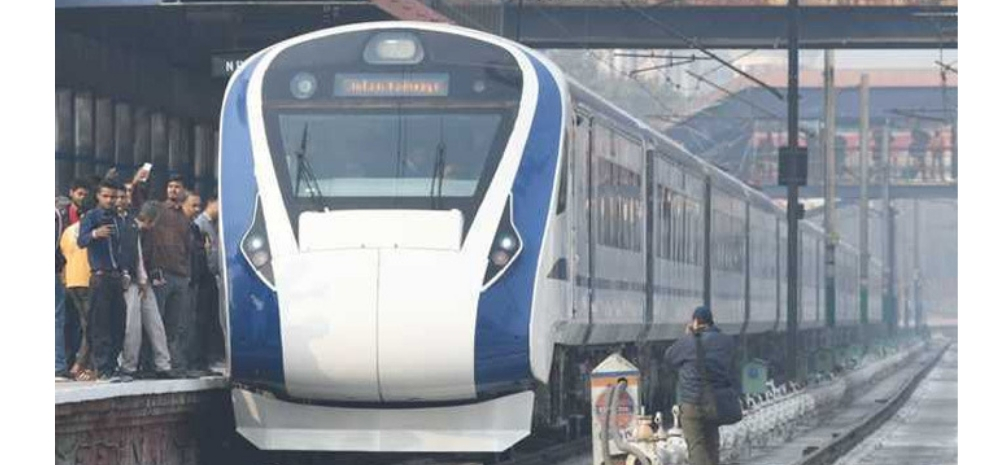Vande Bharat, India’s self-developed semi-high speed train set, may be replacing Rajdhani and Shatabdi trains.

BG Mallya, General Manager of Integral Coach Factory (ICF), Chennai, confirmed this in an interview.
Sleeper Version of Vande Bharat To Be Launched: ICF General Manager
The Integral Coach Factory (ICF), a division of Indian Railways in Chennai, developed and designed the Vande Bharat Express, India’s first semi-high-speed train.
The train is sleek, contemporary, and completely air-conditioned, and it offers passengers first-rate amenities and services.
The Vande Bharat Express is a top-notch train that showcases the best of Indian engineering and technology. Passengers prefer it because of its blend of speed, comfort, and luxury, and it will undoubtedly have a big impact on Indian Railways’ future.
In the interview, Mallya also stated that a sleeper version of the Vande Bharat will be launched, especially for long journeys. This sleeper version will be launched by the current financial year. As per Mallya, in the upcoming fiscal year, 46 trains with 16 cars each are anticipated.
On being asked about how many tenders of the Vande Bharat sleeper have been launched, Mallya said, “The Railway Board has opened a tender but what we are trying to do is we are trying to use the material which we have for the chair car version and produce the first sleeper version.”
Vande Bharat Trains To Replace Shatabdi Trains?
The Vande Bharat is launched with nearly identical to the Shatabdi timings in many of the locations where it has been distributed. Naturally, the Shatabdi train will be used elsewhere since it will take time for the ICF to produce an equal number for Vande Bharat. As a result, ICF will continue with the production, substituting Vande Bharat whenever it is practical, and using Shatabdi on alternate routes.
He also talked about features that may be introduced in the trains in the future. Car trains will be made of aluminum, and will therefore be lightweight and use less energy. ICF would be producing aluminium car body trains for the first time at that point. Because it is so light, the energy efficiency increases as the train rate decreases. As a result, the power requirement drops.
At ICF, there is a plan to build trains that can travel at 200 kph. The opportunity to modernize their technology will also be given to other coach manufacturing facilities like MCF – Modern Coach Factory, Raebareli, and Rail Coach Factory, Kapurthala.












